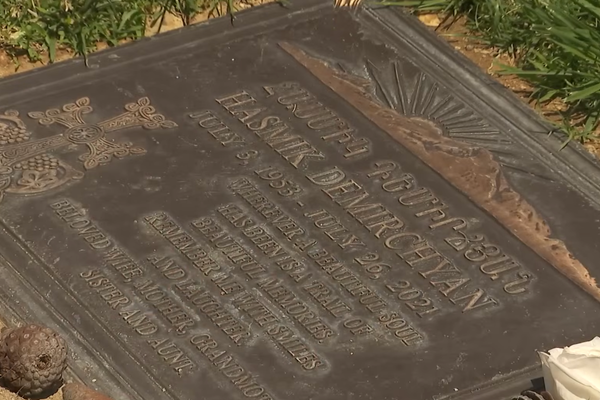
Considering the subject matter, viewers who aren’t familiar with the 2013 James McBride novel The Good Lord Bird could be forgiven for expecting a sombre tone from this adaptation, airing on Sky Atlantic. The story follows the last years of the American abolitionist John Brown, whose raid on Harpers Ferry in 1859 – an attempt to initiate a slave revolt – is widely believed to have been the prelude to the American civil war.
But this series is far from sombre. It is a waggish and raucous tale that sets out its stall from the beginning, when it opens with a note that “All of this is true”, quickly followed by another, adding, “Most of it happened”. The story is narrated by Henry Shackleford, known to Brown as Henrietta, or Little Onion, owing to one of the many misunderstandings and mishaps that urge the story onwards. Henry is a 13-year-old slave, freed by Brown and then adopted, sort of, by him, almost entirely by accident; Brown’s bluster and momentum hit such a pace that he doesn’t stop to realise that Henry is not the girl he thinks she is. But being a girl has its advantages in the bloody world Brown and his “abolitionists’ army” inhabit, and Henry has an instinctive knack for survival.
Ethan Hawke is astonishing as Brown, putting in what may be a career-best performance. He is a spitting, roaring evangelist who spends this first episode riding around Kansas in 1858, slashing and shooting his way through anyone opposed to his mission to end slavery in the US. Tonally, this is a tricky balancing act, to say the least, but The Good Lord Bird doesn’t seek to uphold the trope of the white saviour, and is filled with sly, funny moments that acknowledge a bracing nuance. In one such moment, Brown swears to “take this fight all the way to Africa, if need be”, glancing at Bob (Hubert Point-Du Jour), another slave who has befriended Henry, who says it all with a single, brief look of confusion and disdain.
As Henry, newcomer Joshua Caleb Johnson is similarly fantastic, holding his own against big actors doing big acting. His Henry is a canny observer, whose situation poses the question about what freedom actually means. “I’m learning to read the Bible and work a pistol,” he reasons. “I guess I am free.” But the circumstances in which he lives, following a band of white men around the country into battle after bloody battle, gives the impression of a young man not entirely convinced that this is true.
Nothing in John Brown’s plan goes quite as he would like it to. At the beginning of the series, he is about to be hanged, before the story flashes back to what brought him to the gallows. Brown is prone to saying that the US is “a beautiful country”, and his zeal for that provides a brisk contrast to the violence with which he is willing to go after the preservation of it. At times, The Good Lord Bird is truly gruesome. The violence is unsparing. People are beheaded, shot and left to bleed to death in explosions of gore, blood flickered on to faces and limbs. Brown does not waver in his belief that such combat is necessary to bring about emancipation.
It might seem strange to say, then, that it is also deeply entertaining. It is witty and farcical, a rollicking ride through history – a history that may be less known to British viewers – that embraces absurdity. The perspective is the narrator’s, so we see most of the action through Henry’s eyes, and with his arch interpretation of events from far into the future. Brown causes chaos wherever he goes, deliberately and through a sheer lack of caution or hesitation, riding his “gunfighters of the gospel” into battle whenever he gets the chance. It is unapologetically wordy, and the language is brilliant and vibrant, with an ear for theatrical sparring. Brown is referred to as “a white-livered, tit-squeezing yankee”; even a line as straightforward as “Go to hell, you loon!” conjures up a certain atmosphere.
The Good Lord Bird feels like complicated, adult television that assumes its audience will view it with intelligence. It asks questions that it doesn’t always wish to answer, and it has a surprising amount of fun doing so. The horrors are ever-present, the violence loud and terrible, but from Henry’s point of view, there is adventure to be found and had. I enjoyed this reluctance to make it easy. This irreverent take on history is eager to jolt viewers out of whatever comfort zone they might be in.







